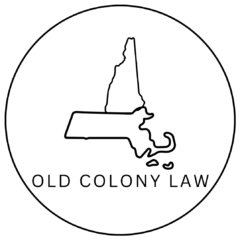MassLive reports on more reaction to the Healey Administration’s proposed tax relief package:
Two of Gov. Maura Healey’s proposed tax breaks would disproportionately benefit the commonwealth’s wealthiest residents, while cutting into state resources that could be used for other critical needs, a new report states.
The left-leaning Massachusetts Budget and Policy Center reiterated its criticism this week of Healey’s pitch to overhaul the short-term capital gains tax and estate tax, warning that “richer, higher-income” households would reap the greatest relief compared to “poor or moderate income households.”
Here is the estate tax excerpt from the Massachusetts Budget and Policy Center report:
Estate tax – The Governor proposes to provide a $182,000 tax credit to large estates. Estates valued over $3 million would receive the full benefit of the tax break. Smaller taxable estates, those falling between $1 million and $3 million, would only be able to use a fraction of this credit. The annual budget cost of this policy would be $275 million. This proposal would be a larger revenue loss than Governor Baker’s estate tax proposal or those of the legislature last year, all of which would have eliminated taxes on estates up to $2 million. The total cost of various estate tax proposals depends most on how they would impact taxes levied on estates over the threshold. Over 70 percent of the cost of the Governor’s proposal comes from the large tax breaks given to estates over $2 million. An alternative proposal in the legislature would eliminate taxes on estates below $2 million. Like the Governor’s proposal, this would also fix the so-called “estate tax cliff.” The legislative plan would do all this at one-third of the cost of the Governor’s proposal. It accomplishes this by leaving taxes on larger estates unchanged, other than a partial reduction in tax on estates slightly above the new $2 million threshold.
The Governor’s tax cuts for large estates and short-term capital gains, which overwhelmingly benefit wealthy households, would cost the Commonwealth roughly $390 million in annual revenue. As the legislature takes up this proposal, it can choose not to include these components or to substitute less expensive alternatives. The revenue freed up by that choice might then be used for other progressive tax breaks such as a boost to the Earned Income Tax Credit (EITC). The revenue savings could also be used for public investments such as reducing waitlists for vocational schools, childcare supports, or affordable housing. Each of these investments would encourage people to live in Massachusetts and would increase our state’s economic competitiveness.
This post is a part of Old Colony Law’s Estate Tax Updates.
